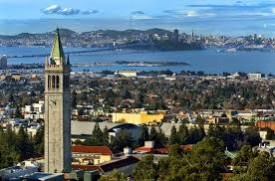Weed will now be free in Berkeley. For some people, anyway.
 The Berkeley City Council voted unanimously in early September to require that the city’s medical marijuana dispensaries set aside 2 percent of their product for people who can’t afford it. The council cast an initial vote on the cannabis plan in July.
The Berkeley City Council voted unanimously in early September to require that the city’s medical marijuana dispensaries set aside 2 percent of their product for people who can’t afford it. The council cast an initial vote on the cannabis plan in July.
It’s a novel idea: Make sure everyone can get the weed they need, including the poor. But if you accept that marijuana is medicine – and most people do – it makes perfect sense.
Hospitals and clinics provide free medical care to the poor, so there’s no reason the marijuana industry shouldn’t do the same. Weed is expensive, and insurance plans don’t cover it (yet). That leaves pot shops to provide free cannabis.
“There are some truly compassionate cases that need to have medical marijuana,” Berkeley Mayor Tom Bates said. “But it’s expensive. You hear stories about people dying from cancer who don’t have the money.”
Starting in 2015, anyone who needs medical cannabis and makes less than $32,000 – or $46,000 for a family – can get it at no cost from one of the city’s four legal dispensaries.
Many pot shops already do this, though they typically provide less free weed than the city will now require. And they may set lower poverty cutoffs for patients.
“We do this on our own, so we certainly welcome the city mandating that all dispensaries create these sorts of programs,” said Sean Luse, chief operating officer of the Berkeley Patients Group, the city’s largest dispensary.
But Luse said 2 percent may be an unrealistic goal.
“I do think there could be problems if we’re oversupplying demand and giving away more cannabis than is legitimately needed,” he said. “We’ll see how this plays out.”
Of course, patients must have doctor recommendations before they qualify for the free stuff.
California voters approved medical marijuana in 1996, and the state has treated the drug as a medicine ever since. But weed remains illegal for any use under federal law.
 Supporters of the new policy say they’re merely helping sick patients who rely on charity to pay for their care. The cutoff may be high, but so is the cost of living in Berkeley.
Supporters of the new policy say they’re merely helping sick patients who rely on charity to pay for their care. The cutoff may be high, but so is the cost of living in Berkeley.
“Basically the city council wants to make sure that low-income, homeless, indigent folks have access to their medical marijuana, their medicine,” said City Council Member Darryl Moore.
Still, the plan has drawn angry criticism from some quarters. Their argument: The city shouldn’t be encouraging anyone to toke, let alone people they claim are unmotivated to begin with.
“It’s ludicrous, over-the-top madness,” said Bishop Ron Allen, who leads the Faith Based Coalition, a group that opposes marijuana reform. “Why would Berkeley City Council want to keep their poverty-stricken, under-served high, in poverty, and lethargic?”
 California Marijuana Market Breaking "Marijuana News" from CA
California Marijuana Market Breaking "Marijuana News" from CA




